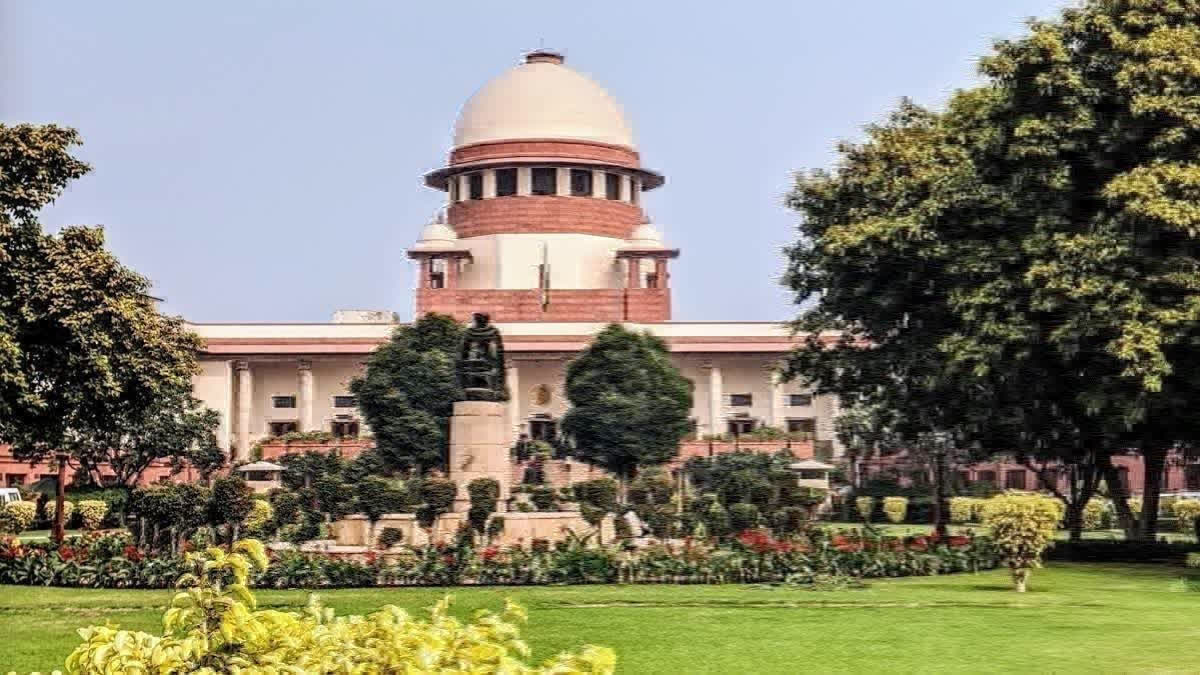New Delhi: Whether a person who is only accused of committing some crime or even convicted can be inflicted the punishment of demolition of his property/properties? The Supreme Court on Wednesday said the answer is an emphatic ‘no’.
The apex court said it is a "chilling sight “when a bulldozer is used to hand out one of the harshest punishments, demolition of private property or homes of the accused person, and emphasised that illegal demolitions, which also impacts the family, is "nothing but an anarchy" and "lawless state of affairs, where might was right".
The apex court held that victims’ of illegal demolition must get compensation and issued a slew of guidelines for following due process before demolitions.
A bench comprising Justices B R Gavai and K V Viswanathan opened the judgment citing the importance of shelter described by a famous Hindi poet 'Pradeep'. The bench said it is a dream of every person, every family to have a shelter above their heads and a house is an embodiment of the collective hopes of a family or individuals' stability and security.
On September 17, the top court stayed illegal demolitions across the country in an order and assured that it would lay down guidelines to protect even convicted criminals from the punitive demolition of their property by authorities.
Justice Gavai, who authored the 95-page verdict on behalf of the bench, said it is not only the accused who lives in such property or owns such property and if his spouse, children, parents live in the same house or co-own the same property, can they be penalised by demolishing the property?
"As is well known, a pious father may have a recalcitrant son and vice versa. Punishing such persons who have no connection with the crime by demolishing the house where they live in or properties owned by them is nothing but an anarchy and would amount to a violation of the right to life guaranteed under the Constitution", said Justice Gavai, adding that it will amount to inflicting a collective punishment on the entire family or the families residing in such structure.
The bench said the right to shelter is one of the facets of Article 21. "Depriving such innocent people of their right to life by removing shelter from their heads, in our considered view, would be wholly unconstitutional," it said.
During the hearing, Solicitor General Tushar Mehta had contended that in some cases it may be by sheer coincidence that the properties which were in breach of local municipal laws governing them also happen to belong to the accused persons.
"When a particular structure is chosen all of a sudden for demolition and the rest of the similarly situated structures in the same vicinity are not even being touched, mala fide may loom large.…..," noted the bench.
Justice Gavai said a presumption could be drawn that the real motive for such demolition proceedings was not the illegal structure but an action of penalising the accused without even trying him before a court of law.
The bench said while considering the issue with regard to the demolition of the houses which are required to be demolished for breach of the local laws, we find that the principle of the rule of law needs to be considered even in the municipal laws.
The bench said, for an average citizen, the construction of a house is often the culmination of years of hard work, dreams, and aspirations, and a house is not just a property but embodies the collective hopes of a family or individuals for stability, security, and a future. "It gives a sense of dignity and a sense of belonging. If this is to be taken away, then the authority must be satisfied that this is the only option available," said the bench.
Justice Gavai said illegal demolitions strike a blow at the rule of law and are not permissible. "The executive cannot become a judge and decide that a person accused is guilty and, therefore, punish him by demolishing his residential/commercial property/properties. Such an act of the executive would be transgressing its limits," said the bench.
